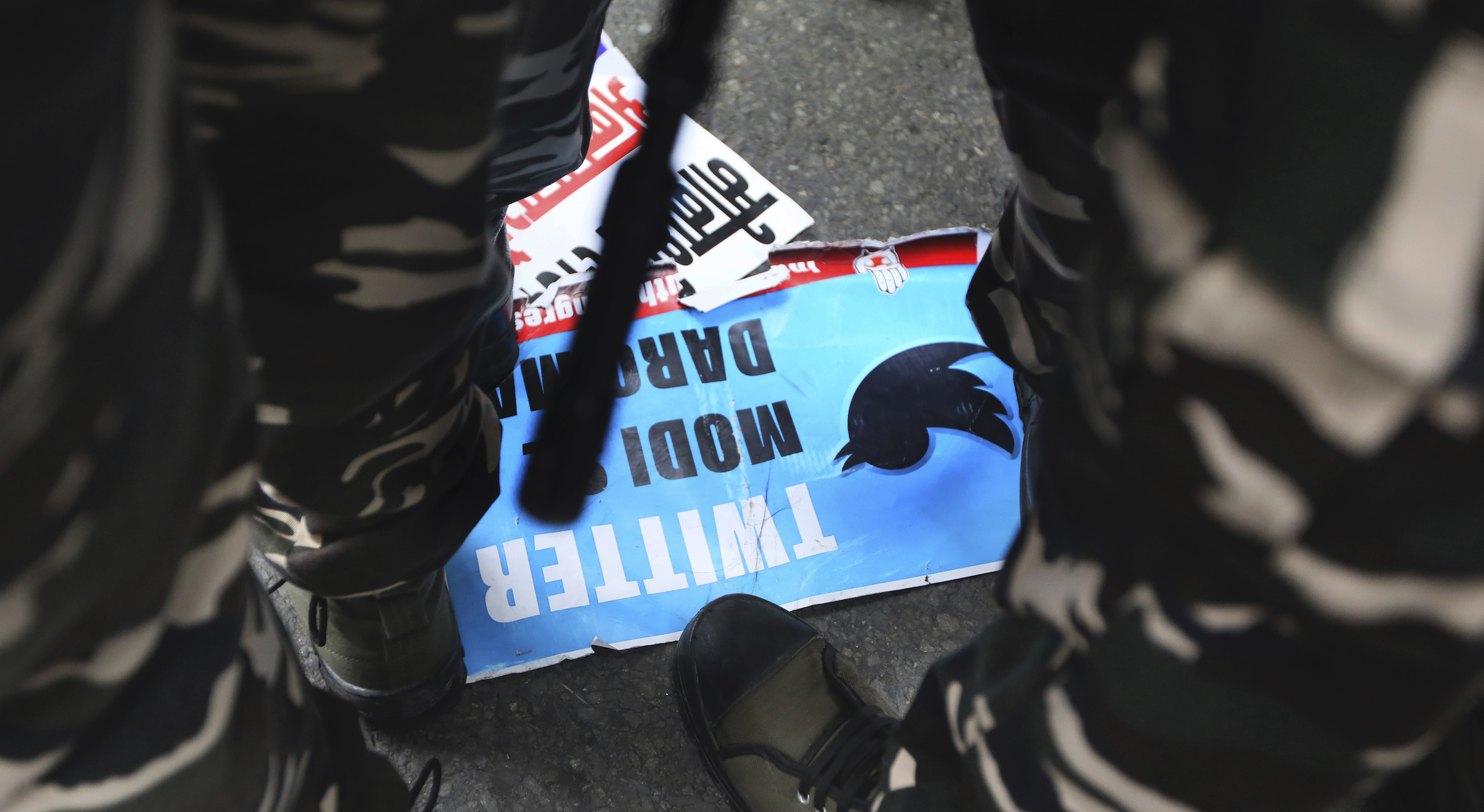India One Of Top 4 Nations Sending Requests To Twitter To Takedown Content; How Twitter’s Transparency Report Falls Short and Raises Important Questions?
Twitter has been known for its strong stance on transparency reporting and defending free speech. Twitter 1.0 was considered a pioneer in transparency reporting, setting a standard for other tech companies to follow. However, with changes in leadership and increasing pressure from governments worldwide, Twitter's transparency reporting has faced some challenges in recent years.

As per Twitter‘s transparency disclosures for January to June 2022, India was among the top 4 countries to send legal directions to Twitter to remove content on behalf of the state. During this reporting period, Twitter received 53,000 legal requests to remove content from governments. The compliance rate of Twitter for these requests varied by requester countries. Japan, South Korea, Turkey, and India were the top requesting countries for content removal.
In terms of government requests for user data, Twitter received 16,000 such directions during the reporting period. The top five requesting countries for account information in H1 2022 were India, the US, France, Japan, and Germany, as per Twitter’s disclosures.
The numbers reported by Twitter regarding legal requests for content takedowns and user data requests are indeed significant, particularly in light of the ongoing legal dispute between Twitter and the Indian government on content moderation policies. It is also noteworthy that Twitter has not disclosed the extent to which it complied with the Indian government‘s takedown requests for content.

What Happened To Free Speech, Elon Musk?
Elon Musk’s recent statement regarding blocking and censoring content in India to protect Twitter’s Indian employees from potential legal action also adds to the conversation on content moderation and freedom of expression in the country.
However, it is important to note that Elon Musk only became the CEO of Twitter in October 2022, and the reported figures from Twitter correspond to the time period between January to June 2022, during which Parag Agarwal was the CEO
It is necessary to note that Twitter’s compliance with government takedown requests is not unique to India and has been a topic of debate in many countries. However, the issue of content moderation and free speech in India has been particularly contentious in recent years, with the government passing new regulations that give it greater power to regulate social media platforms.

Turkey, Other Countries And Twitter
According to Twitter’s Transparency Report covering January-June 2020, Turkey was the country with the highest number of third-party takedown requests, court orders, and accounts and tweets withheld across numerous categories.
The report revealed that Turkey made a total of 45,776 combined requests, including court orders and other legal demands, which was the highest among all countries.
Japan followed closely behind with 38,941 requests, while Russia came in third with 30,436 combined requests. Turkey was also the country with the highest number of court orders sent to Twitter during this period, with a total of 6,513. Russia was in second place with 2,972 court orders, while South Korea had 515 court orders sent to Twitter.
Leading in the category of “other legal demands category” (non-court order requests), Turkey submitted a total of 39,263 requests during the first six months of 2020.
The country is followed by Japan, which jumped to second place with 38,814 requests, followed by Russia, which submitted 27,464 such requests, the report said.
Moreover, the country sent 347 information requests to Twitter, which did not comply with any of these during the first six months of the year.

Not Just Twitter
The report arrives as large social media platforms, including Twitter, are faced with the country’s social media law. Passed in July, the law requires platforms with over one million daily users to designate a Turkey representative, who would have to oversee the removal of any piece of content that the Turkish authorities consider illegal within 48 hours of an official request. The law also stipulates stiff penalties for non-compliance.
In November, Twitter, along with Facebook, Instagram and others, was fined $1.2 million each after failing to appoint a representative to the country.
Are Turkey And India On The Same Page?
The Turkish government has faced criticism from human rights groups and free speech advocates for its crackdown on social media and online expression. Critics argue that the government is using the social media law as a tool to silence dissent and stifle free speech and that the law’s vague provisions give authorities broad powers to censor online content. The government has also been accused of using legal action and other tactics to intimidate journalists and suppress independent media.
Turkey has a long history of censorship and control of the media, with the government frequently using legal and regulatory measures to suppress critical reporting. In recent years, the government has also increased its control over the judiciary and the police, further limiting the space for free expression and dissent. Despite this, many Turkish journalists and activists continue to speak out against government repression, often at great personal risk.
The largest number of accounts – a total of 2,501 – withheld by Twitter was from Turkey in the first half of 2020, the report said, followed by Russia with 340 accounts and India with 238.

What Has Changed 2.0 Twitter?
Twitter has been known for its strong stance on transparency reporting and defending free speech. In 2014, Twitter sued the US government over restrictions on its transparency reporting, arguing that the government’s gag orders on disclosing surveillance requests violated the First Amendment.
Twitter 1.0 was considered a pioneer in transparency reporting, setting a standard for other tech companies to follow. However, with changes in leadership and increasing pressure from governments around the world, Twitter’s transparency reporting has faced some challenges in recent years.
Transparency Is Important
If that is true, then it does seem that Elon Musk’s leadership at Twitter has resulted in a decrease in transparency reporting. Transparency reports are crucial for users to understand how platforms handle government requests and how they protect user privacy and free expression.
Without transparency, it becomes harder to hold platforms accountable for their actions. However, it’s worth noting that Twitter has stated that it is reviewing its approach to transparency reporting, so it’s possible that the lack of reporting is a temporary situation while the company develops a new approach.
Transparency and accountability are important for any company, but especially for social media platforms that play such a large role in shaping public discourse. Hopefully, Twitter will take steps to improve its transparency reporting in the near future.
As for government requests, which are the most important part of transparency reporting, Twitter provided two paragraphs:
Around the world, Twitter received approximately 53,000 legal requests to remove content from governments during the reporting period. Twitter’s compliance rate for these requests varied by requester country. The top requesting countries were Japan, South Korea, Turkey and India.
Twitter received over 16,000 government information requests for user data from over 85 countries during the reporting period. Disclosure rates vary by requester country. The top five requesting countries seeking account information in H1 2022 were India, the United States, France, Japan, and Germany.
In Conclusion: A lack of detail provided in Twitter’s transparency report regarding government requests. It is important for users to know how their data is being requested and handled by governments, and a lack of transparency can undermine trust in the platform. It is possible that Twitter is still reviewing their approach to transparency reporting and may provide more detail in future reports. However, for now, it does seem that the information provided is insufficient for users to make informed decisions about using the platform.




